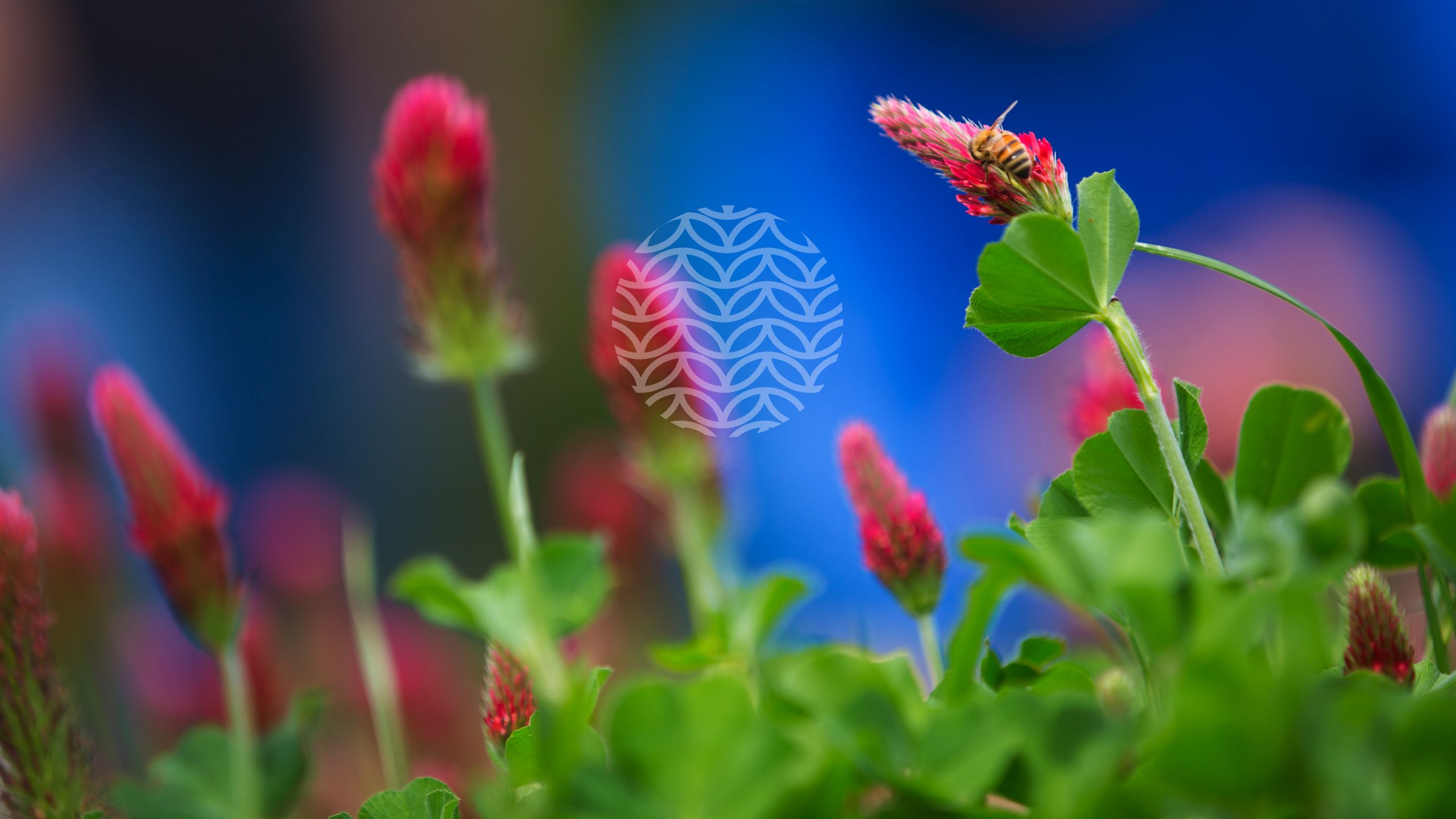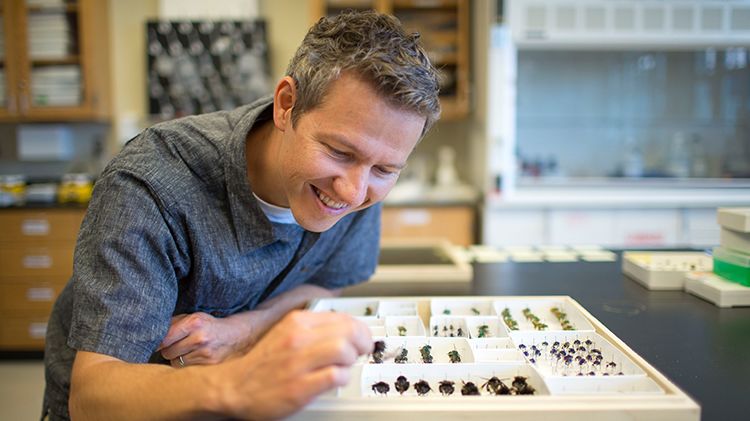OUR SUSTAINABLE FUTURE: FOOD

Sustainability Spotlight: Faculty

PLIGHT OF THE BUMBLEBEE
Berry Brosi, Winship Distinguished Associate Professor of Environmental Sciences
There are more than twenty thousand species of bees on Earth, more than birds and mammals combined. So what’s the problem if one disappears? Berry Brosi, Winship Distinguished Associate Professor in the Department of Environmental Sciences, studies how bee communities react to disturbances in both their composition and their environment and the potential impacts of those disruptions on agriculture and the global food supply. “That’s important, given the ongoing environmental changes we’re experiencing around the world,” Brosi says.

Berry Brosi, Winship Distinguished Associate Professor of Environmental Sciences
During his decade of research at the Rocky Mountain Biological Laboratory in Colorado, Brosi has fine-tuned the science of DNA metabarcoding of pollen, which enables him to analyze the diets of bees. When he temporarily removed the most abundant of the eleven bumblebee species from a research plot, the remaining species decreased their floral fidelity, meaning they visited multiple different plant species instead of just one. “This really matters,” Brosi says. “Plants need to have pollen from the same species to be pollinated. More of the wrong pollen grains were deposited on flowers, which ultimately produced fewer seeds.”
Writ large, that could possibly result in decreased crop production. Another study at the Colorado lab is examining how accelerated snowmelt might also impact pollination.

Berry Brosi, Winship Distinguished Associate Professor of Environmental Sciences
Brosi is also investigating current hive management practices for the European honeybee, the primary agricultural pollinator worldwide. He found that increasing a colony’s dietary and genetic diversity and selecting for bees with higher resistance to parasites can contribute to the health of this declining keystone species vital to the world’s food supply.
—Kristin Baird Rattini

Berry Brosi, Winship Distinguished Associate Professor of Environmental Sciences
Berry Brosi, Winship Distinguished Associate Professor of Environmental Sciences

Berry Brosi, Winship Distinguished Associate Professor of Environmental Sciences
Berry Brosi, Winship Distinguished Associate Professor of Environmental Sciences

Want to know more?
Please visit Emory Magazine, Emory News Center, and Emory University.

